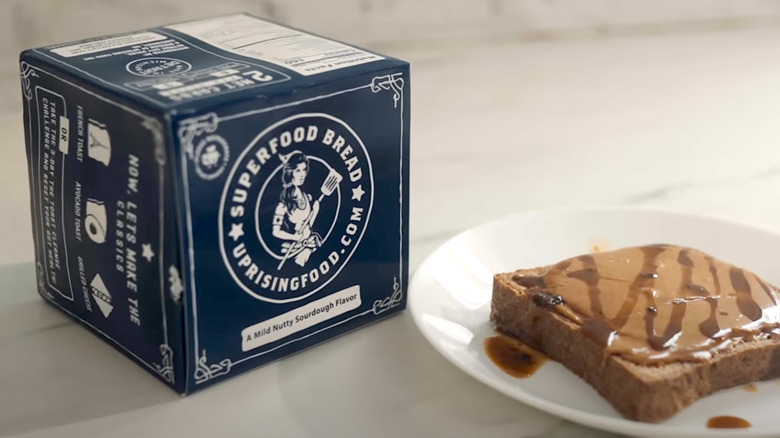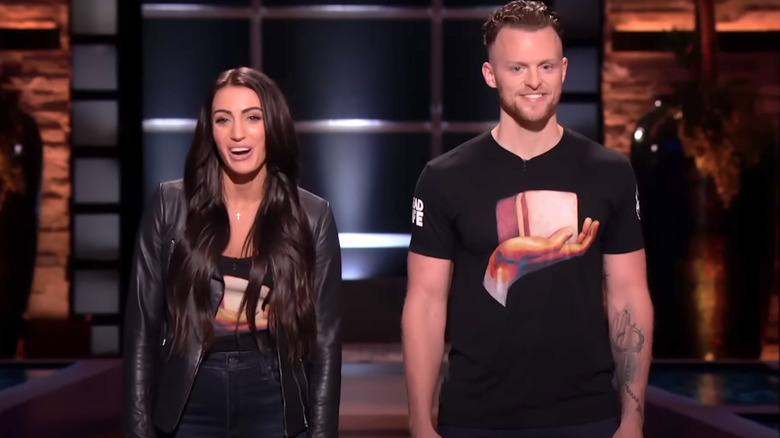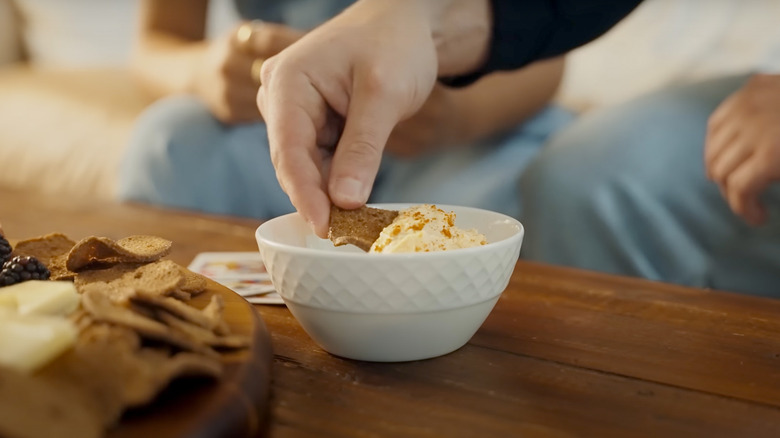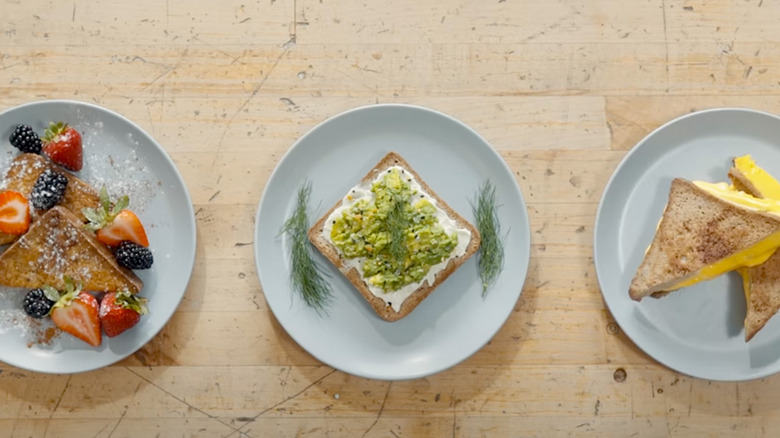Uprising: Here's What Happened After Shark Tank
We may receive a commission on purchases made from links.
For people who don't eat gluten, either by choice or necessity, finding a tasty bread to enjoy can pose a significant problem. According to the National Institute of Diabetes and Digestive and Kidney Disease, it's thought that around two million people in the United States have celiac disease, which means eating foods containing gluten causes damage to the small intestine. Many more go gluten-free out of preference, or because of an intolerance, with millennials most likely to follow the trend: Almost 14% of this young demographic said they adopted a gluten-free diet in 2021 and 2022, according to Statista.
In 2019, seeing a gap in the market, husband-and-wife team William and Kristen Schumacher, along with artisan bakers and co-founders, Mark and Sara Frommeyer, developed a dairy-free, gluten-free, and low-carb bread, which was also suitable for keto and paleo diets. In 2021, they took the idea to "Shark Tank," hoping to introduce Uprising to a wider audience and secure a much-needed investment.
What happened to Uprising on Shark Tank?
William and Kristen Schumacher, from Cincinnati, Ohio, appeared in the Season 13 premiere of "Shark Tank," seeking $500,000 for a 3% stake in their company, Uprising. They said their ambition was "to revolutionize health, and it starts with bread," via YouTube.
The sharks were impressed by the taste of the bread, and the fact that it has such a long shelf life, lasting up to a month if stored in the fridge. "Let me give you a lot of credit for the taste, because I have tried a lot of these products, and they taste like utter s***," said Kevin O'Leary. However, they were far less impressed by the price tag of $12 for a small cube of bread.
Even more concerning for the potential investors was that although the figures initially appeared healthy, with sales of $85,000 in the first year, just under $1 million in the second year, and $2.1 million in the six months before Uprising appeared on "Shark Tank," the company was yet to make a profit. The business' valuation of $16.6 million was called into question, and, one by one, the sharks dropped out. The last shark remaining, Mark Cuban, didn't understand the company's lack of profitability and was not impressed when the Schumachers bombarded him with marketing jargon rather than a straightforward answer. He, too, was out, and Uprising left without a deal.
Uprising after Shark Tank
Despite not securing a deal, William and Kristen Schumacher said in a press release that soon after the show airing, they received an influx of traffic, adding that they valued the feedback from the sharks.
Uprising launched a range of "superfood" chips alongside its bread in 2021 and later went on to increase the price of its bread from its initial $12, offering it in bundles of four cubes for $60, as well as a bundle containing two cubes of bread, plus four packs of chips, in sea salt and savory rye flavors, for $42. The company also began to sell branded merch, such as aprons. In December 2021, the Schumachers did an interview with Authority, saying that their success had allowed them to offer more job opportunities at their Detroit bakery, and teased that new products would be coming out in 2022.
The company was still in business until early 2023 but finally closed in March 2023. Uprising's website is no longer active, and its Facebook account has not been updated since January 2023. However, subsequent comments left by their followers suggest that several customers have been charged for products that they never received, and were unable to make contact with the company, instead receiving an automated email telling them that the company had closed and that they would need to file a dispute with their credit card company.
Why did Uprising go out of business?
Uprising has not released any details about why they decided to cease operations. But questions about the company's financial growth were raised back in 2021, during their "Shark Tank" appearance. The couple admitted on the show that they only made roughly $3.60 profit after shipping costs, despite the high selling price of their product, because it cost $5.25 to make.
The Schumachers were also unable to answer questions from the sharks about how exactly they planned to start making the business profitable. The pair said that they were "experts in digital marketing," and filled their pitch with jargon, but also disclosed that their CAC, or customer acquisition cost, was $50. As Mark Cuban pointed out, they would need a lifetime customer to overcome that cost, as they were losing money with every sale. Barbara Corcoran even went so far as to say she would "lose sleep" if she invested.
Despite raising the cost of their products, and starting to sell them as bundles, were the sharks eventually proved right about Uprising's path to profitability?
What's next for Uprising's founders?
Uprising has not released any details about their reasons for closing, or about any future plans. The brand's website and Instagram are no longer active.
William Schumacher's LinkedIn profile describes him as the former CEO and co-founder of Uprising from 2019 to March 2023, and claims that it "grew into a multimillion-dollar business" over the course of three years. His CV shows he was Chief eComm Growth Expert at PrettyDamnQuick, part-time, for six months from January to June 2023. Since April 2023, he has been a partner at Fresh Dew Co, a business which describes itself as a "marketing company for ruckus makers." Kate (Schumacher) Pielage's LinkedIn profile says that, since July 2022, she has been a Customer Service Manager at Scratchpad, a company that helps sales teams to make "pipeline management and forecasting" simple.
Mark and Sara Frommeyer, meanwhile, the artisan bakers who co-founded Uprising with the Schumachers, are still running their Blue Oven Bakery business in Cincinnati's Findlay Market, Ohio's oldest continuously operated public market. A call out for new staff in July 2023 on Facebook and again in 2024 suggests the business is holding strong, but no word has made clear what their previous partners have in store next.
"Shark Tank" is available for purchase on Prime Video.





